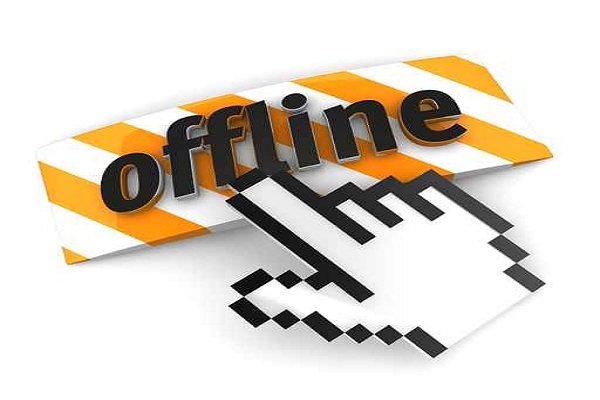LulzSec lays smackdown on News International
News International's month gets even worse with a hack on The Sun's website.


LulzSec has come back from the dead to hack The Sun website, forcing News International to take all of its websites offline.
The hacktivist group announced an end to activities last month, after perpetrating a slew of attacks on organisations it took umbrage with.
Yesterday, LulzSec struck again redirecting people who visited The Sun to a fake story detailing the death of Rupert Murdoch, claiming he had died in his garden after ingesting "a large quantity of palladium."
If the hackers really have been able to access News International email archives and later release them, the impact could be enormous.
As the battle between the hackers and News International continued, LulzSec started redirecting visitors to its Twitter feed.
"TheSun.co.uk now redirects to our twitter feed. Hello, everyone that wanted to visit The Sun! How is your day? Good? Good!" a Twitter post read.
The attack spread to other News International sites, with LulzSec claiming the company's DNS servers, which translate web addresses into IP addresses of a website server, were all down, alongside "all 1,024 web addresses."
Sign up today and you will receive a free copy of our Future Focus 2025 report - the leading guidance on AI, cybersecurity and other IT challenges as per 700+ senior executives
Anonymous has also been implicated in the attacks.
"This was the work of Lulz Security, dear media. We would like to give a shout-out to our bros at @AnonymousIRC though, we love those guys," another LulzSec tweet read.
Various tweets featuring email addresses and passwords have been circulating, with the tweeters claiming they were from a News International archive.
"If the hackers really have been able to access News International email archives and later release them, the impact could be enormous," said Nick Lowe, Check Point's head of sales for Western Europe.
The hack may have come as a result of a vulnerability in the server running new-times.co.uk the site where the fake Murdoch story was posted - a report on the Guardian indicated.
That site was established when the Times was building its paywall. Once the hackers had access to the server, they were able to play around with The Sun's content management system.
The hackers then inserted some Javascript into the 'breaking news' section of The Sun's site to redirect users to wherever they wanted.
The Daily Telegraph recently reported police were investigating whether News International employed computer hackers of its own.
Detectives from Scotland Yard's Specialist Crime Directorate were said to be looking into claims private investigators had been hired to carry out hacking for Murdoch's firm.
Former Prime Minister Gordon Brown last week claimed News of the World had used malware to get hold of information, not just hack phones.
Tom Brewster is currently an associate editor at Forbes and an award-winning journalist who covers cyber security, surveillance, and privacy. Starting his career at ITPro as a staff writer and working up to a senior staff writer role, Tom has been covering the tech industry for more than ten years and is considered one of the leading journalists in his specialism.
He is a proud alum of the University of Sheffield where he secured an undergraduate degree in English Literature before undertaking a certification from General Assembly in web development.
-
 Researchers claim Salt Typhoon masterminds learned their trade at Cisco Network Academy
Researchers claim Salt Typhoon masterminds learned their trade at Cisco Network AcademyNews The Salt Typhoon hacker group has targeted telecoms operators and US National Guard networks in recent years
-
 HPE says unified channel strategy won't force Juniper partners to generalize
HPE says unified channel strategy won't force Juniper partners to generalizeNews Does the company embrace specialists or want a full portfolio push? The answer, it seems, is both
-
 Anonymous hijacks Russian broadcasts with footage of Ukraine war
Anonymous hijacks Russian broadcasts with footage of Ukraine warNews The hacking group said it managed to manipulate the broadcasts of three major Russian state-backed media organisations
-
 Anonymous hackers flood ISIS Twitter accounts with gay porn after Orlando shooting
Anonymous hackers flood ISIS Twitter accounts with gay porn after Orlando shootingNews Hacktivists hijack pro-ISIS Twitter accounts in retaliation for Orlando massacre
-
 Anonymous takes down Nissan in dolphin culling protest
Anonymous takes down Nissan in dolphin culling protestNews The hacker group launched a DDoS attack on the company's global and Japanese websites
-
 Anonymous vs ISIS: Hackers claim ISIS twitter accounts linked to DWP IP addresses
Anonymous vs ISIS: Hackers claim ISIS twitter accounts linked to DWP IP addressesNews Hacking group find link between unused UK government IP address and ISIS twitter accounts
-
 Anonymous hacks ISIS-affiliated Facebook & Twitter accounts
Anonymous hacks ISIS-affiliated Facebook & Twitter accountsNews Hacking collective declares open season on social media accounts linked to Islamic extremists
-
 Anonymous attacks Islamic extremist website over Charlie Hebdo attack
Anonymous attacks Islamic extremist website over Charlie Hebdo attackNews The hackers took down website ansar-alhaqq.net as part of #OpCharlieHebdo
-
 Majority of hidden Tor site requests lead to child abuse images
Majority of hidden Tor site requests lead to child abuse imagesNews A study has uncovered 75 per cent of hidden site traffic points to images of child sexual abuse
-
 Anonymous targets Ku Klux Klan Twitter account
Anonymous targets Ku Klux Klan Twitter accountNews Hacking collective brand white supremacists "terrorists"
